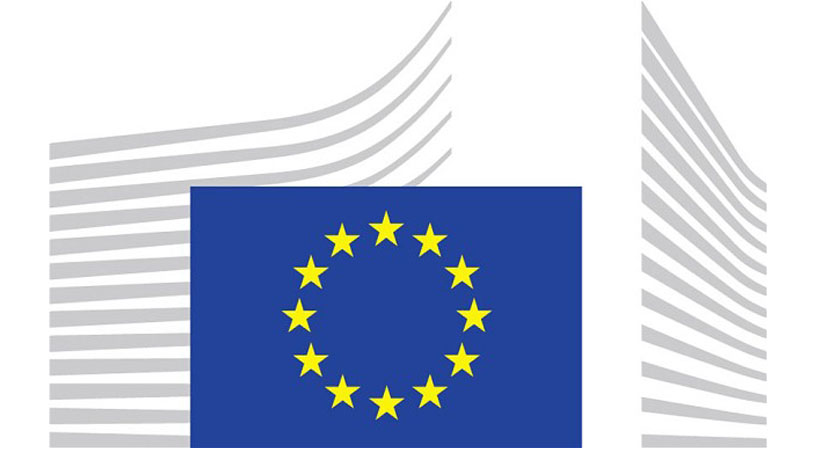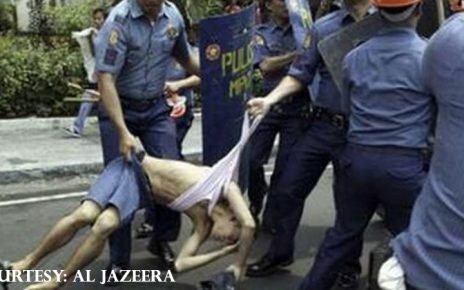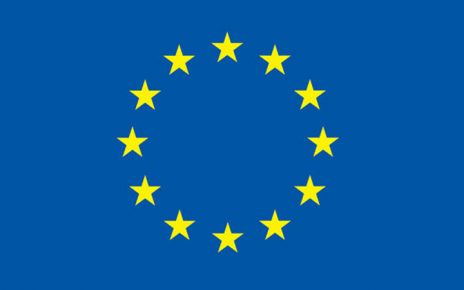The fight against torture is one of the long-standing policy priorities of the European Union (EU).
Ukraine:
On 6 September 2018, the Council of Europe’s Committee for the Prevention of Torture and Inhuman or Degrading Treatment or Punishment (CPT) published the report on its most recent visit to Ukraine from 8 to 21 December 2017.
The report stated that the delegation found no allegation of custodial torture but received a considerable number of recent and credible allegations from detained persons regarding the excessive use of force during apprehension by the police as well as allegations of physical ill-treatment after being brought under control, mainly consisting of kicks, punches and truncheon blows, as well as too tight and prolonged handcuffing. Such allegations were heard more frequently in capital Kyiv than in other regions visited. The Committee called upon the Ukrainian authorities to pursue a policy of “zero tolerance” of ill-treatment of persons detained by the police and other law enforcement agencies.
Another major finding of the CPT delegation was that the current funding for the National Preventive Mechanism (NPM) activities was just about sufficient to cover the operational expenses related with NPM visits to places of deprivation of liberty. However, due to a legal lacuna no funds were available for the remuneration of 203 monitors who were not employees of the Ombudsman’s Office, i.e. those coming from the civil society (NGOs) and media. Therefore, these NGO and media monitors were obliged to seek donor assistance to reimburse their costs and obtain some remuneration for their NPM-related activities. Further, 13 out of the total of 32 posts were lying vacant. The Committee strongly encouraged the Ukrainian authorities to comply with the Guidelines on NPM adopted by the United Nations Subcommittee on Prevention of Torture and other Cruel, Inhuman or Degrading Treatment or Punishment (SPT) in November 2010, in particular by ensuring that the National Preventive Mechanism is allocated sufficient resources (both human and financial) to permit its effective functioning.[1]
Hungary:
On 18 September 2018, the CPT also published the report on its most recent visit to Hungary from 20 to 26 October 2017, together with the response of the Hungarian authorities. The CPT noted that its delegation received no allegations of ill-treatment by staff in any of the establishments visited. However, a significant number of persons interviewed by the delegation alleged that they had been physically ill-treated (for example, kicked, punched or hit with a baton) by Hungarian police officers in the context of their ‘push-backs’ to Serbia; several of them displayed recent traumatic injuries which were consistent with their allegations. The CPT recommended that all police officers receive a clear and firm message, emanating from the highest political level, that any form of ill-treatment of detained persons is unacceptable and will be punished accordingly. The report also highlighted that in the context of ‘push-backs’, there was no procedure which would assess the risk of ill-treatment following the forcible removal, and the CPT recommends that the Hungarian authorities put an end to the practice of ‘push-backs’ to the Serbian side of the border.[2]
Spain:
A delegation of the CPT also carried out an ad hoc visit to Spain from 6 to 13 September 2018, focusing on prison and police establishments in Catalonia. The purpose of the visit was to examine the situation in police and prison establishments in the autonomous community of Catalonia and to assess the progress made since the CPT’s previous visits to this region in 2011 and 2012. To this end, the CPT’s delegation visited Barcelona Women (Wad-Ras), Brians I, Mas D’Enric and Ponent Prisons focusing in particular on the situation of prisoners placed in special and closed regime departments (Departements Especials de Règim Tancat) and on women prisoners. The CPT’s delegation also visited several Mossos d‘Esquadra stations where it looked into the effectiveness of legal safeguards afforded to detained persons as well as examining their treatment and the conditions of detention in which they were held. At the end of the visit, the delegation presented its preliminary findings to the competent authorities.[3]
ENDNOTES
[1]. Report to the Ukrainian Government on the visit to Ukraine carried out by the European Committee for the Prevention of Torture and Inhuman or Degrading Treatment or Punishment (CPT) from 8 to 21 December 2017, https://rm.coe.int/16808d2c2a
[2]. Council of Europe, Hungary: anti-torture Committee observed decent conditions in transit zones but criticises treatment of irregular migrants when ‘pushed back’ to Serbia, 18.09.2018 available at https://www.coe.int/en/web/cpt/-/hungary-anti-torture-committee-observed-decent-conditions-in-transit-zones-but-criticises-treatment-of-irregular-migrants-when-pushed-back-to-serbia
[3].Council of Europe, Anti-torture Committee carries out visit to Spain, focusing on prison and police establishments in Catalonia,17.09.2018 available at https://www.coe.int/en/web/cpt/-/council-of-europe-anti-torture-committee-carries-out-visit-to-spain-focusing-on-prison-and-police-establishments-in-catalonia



